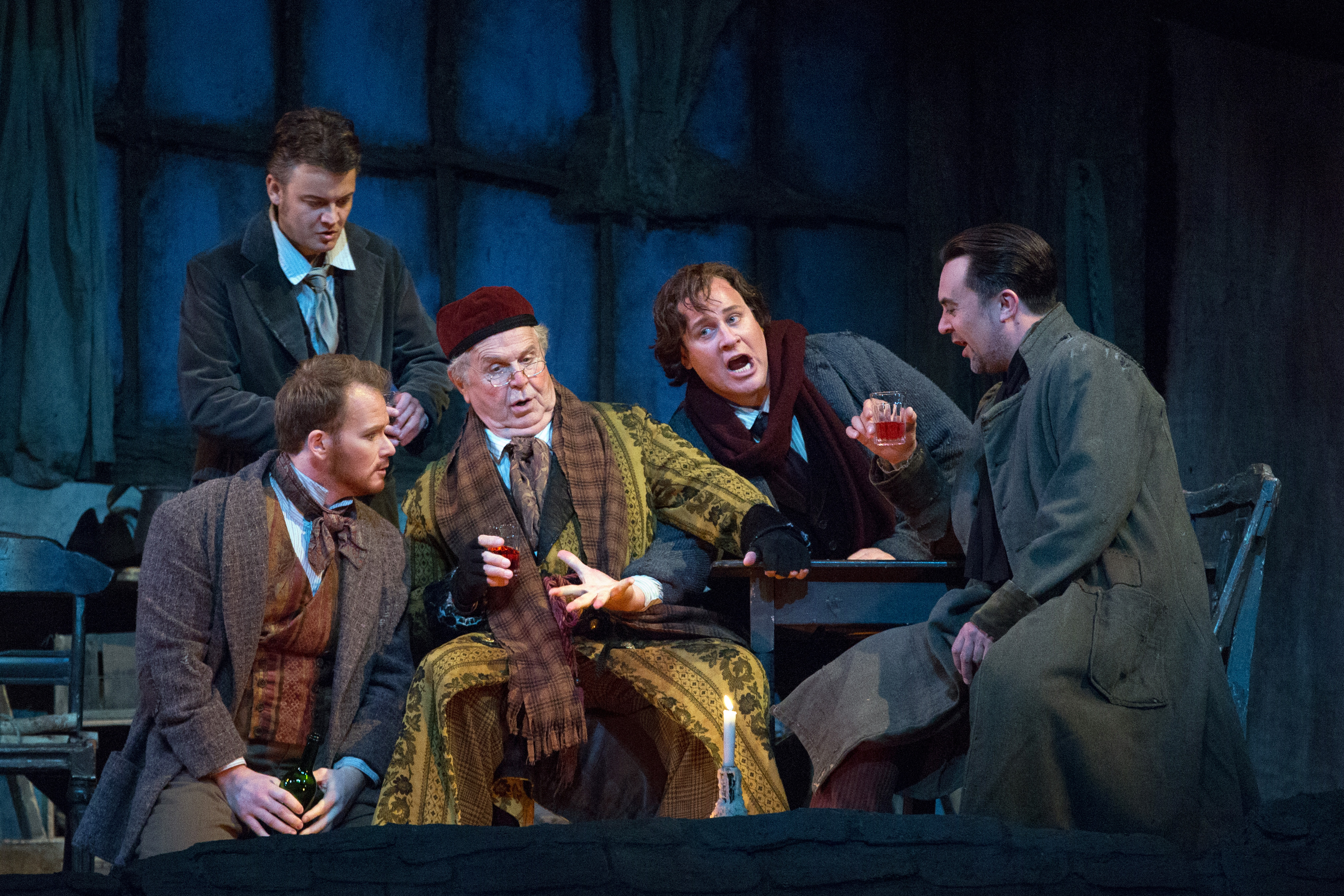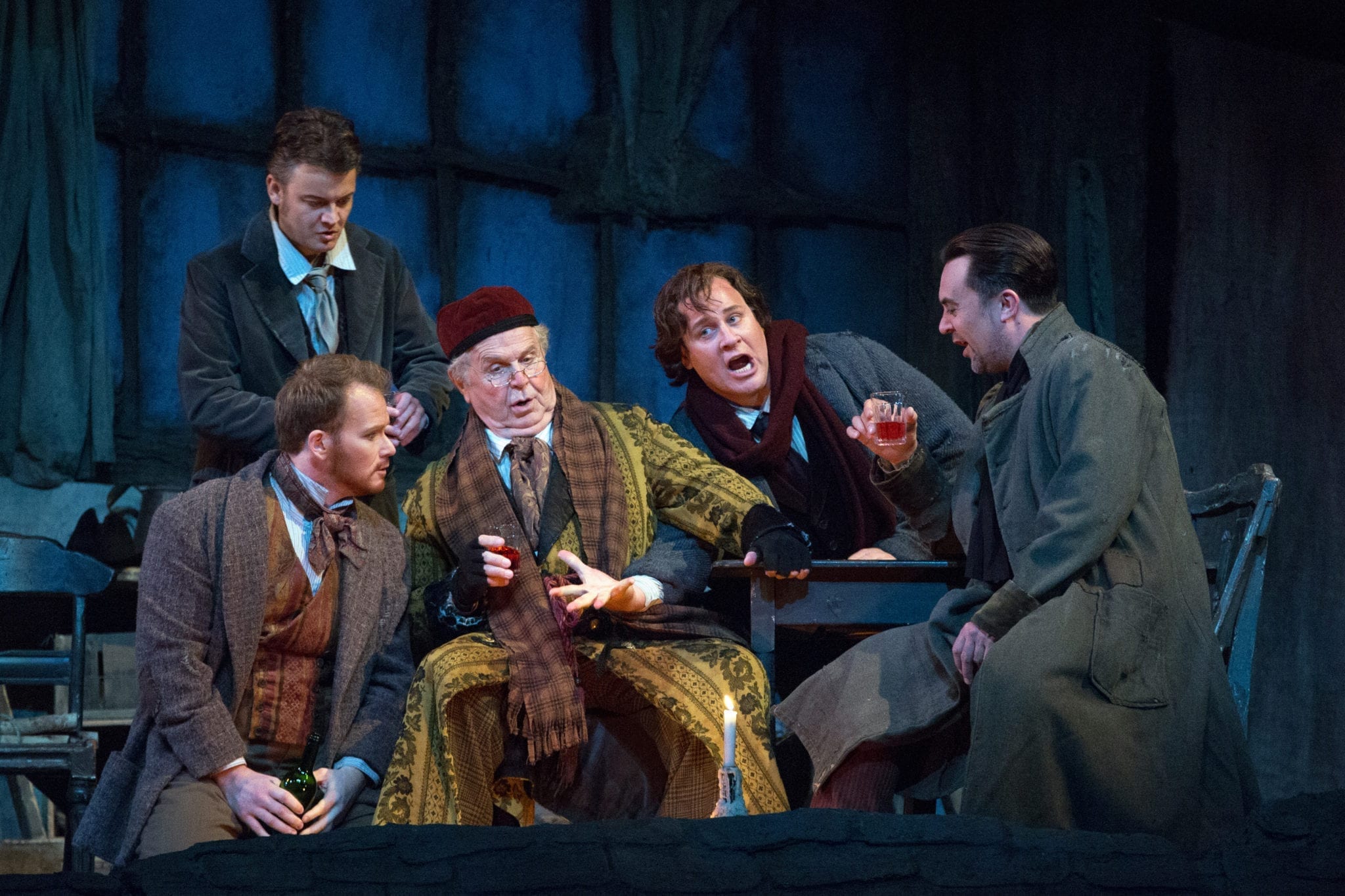
Many things surprise us once we leave academia. In my case, when I entered the professional world of opera, I was hit with several realities.
What I’m about to explain is the biggest lesson I learned about opera after leaving school. Everyone has their own experience transitioning from academia to the professional world but this is what stuck out most to me, and still does to this day.
Opera Reality 101
So, what your school didn’t teach you about opera is…the uncertainty.
As a student, or even as a young artist, there is a timeline within a school or program, and you know roughly how each month will be spent for the foreseeable future. You are given a clear plan.
In the professional world, your plans are the opposite: they’re up in the air. You may have some gigs down the road but you might have a week, a month or even a few months without any work. And that is scary.
How you overcome periods of uncertainty and your willingness to put up with this lifestyle, is a deciding factor for a lot of careers.
Even after spending years in higher education, it’s doesn’t guarantee you a career. What we all learn is the amount of effort you put in doesn’t always equal what you get out.
A lot of it is blind faith—a sort of a “joie de vivre” or “Bohemian” flexibility that a lot of artists are willing to endure for their art.
Every now and then, you might get a call to step in for a gig short-notice and once again, your schedule changes. Sure it’s exciting, but you are still asked to be flexible and participate in this “inconsistent” lifestyle, which is yet another hardship.
I’ve spent many a night on friend’s couches, over-drafting my account, and surviving on Little Caesars’ $5 pizzas all for my art. These were all things I was happy to do for the slight chance I would make it one day as a singer because I was told I had to give it all…yet I was unsure of my future the entire time.
Not everyone can deal with these uncertainties and that’s fine. If you’re a planner, this can be a frustrating way to live. In other ways, it can be romantic.
Either way, it’s hard.
I try to think of it as a “rite of passage” for artists: experiencing that uncertainty is almost necessary. It’s what galvanizes all artists together in a common artistic endeavor.
“You are defined by what you are willing to struggle for” – Mark Manson
Not Only That But…
During your time in a program, your development is consistent because of your tailored schedule. Yet once you hit the professional opera world, your development is all up to you or the jobs you get.
It’s like you’re thrown out into orbit and you’re circling planet “Opera Career.” Only when you arrive at your next gig do you hit (or miss) solid ground.
Even now in my career when I get time off, it can be scary. Sometimes it rolls into a nice vacation or a mental break from music but I have to think ahead and plan that time intelligently.
The first time I had time off as a young professional was when I was singing in Stuttgart and the stagehands went on strike. I had two entire (paid) months off and I had to be intelligent with my time. I took the opportunity to learn German and hired a tutor. I became proficient by the time I left the country.
It was up to me how I spent those two months and I had to continue being productive or else I would have gone stir-crazy as well as gotten behind on my potential development as a singer. I had to motivate myself to develop without a program telling me how.
You have to learn how to occupy your time in between gigs in a productive way and not get down. This can be difficult since financial anxieties and worries can get emotionally overwhelming.
What Can You Do?
There’s not much a school can do to prepare a student for these experiences. It’s not part of a curriculum or a skill you can teach. A program’s job is to teach students how to sing and send them on their way. There’s little room for teaching such life skills. Regarding this life skill, you either have it in you or you don’t.
Also, it’s almost impossible to prepare oneself for a life of uncertainty. It’s helpful to be aware of such potential struggles but there is no preparation like going through it yourself.
Whether or not I knew about it beforehand, it wouldn’t have changed a thing for me.
I will say that having very humble beginnings helped me to live a more humble lifestyle until I began working more steadily.
Since I don’t feel it’s necessarily up to a school to talk to students about this, I encourage students out there to ask any “real-life” questions to either their teachers in their private lessons or to visiting singers, directors, or conductors.
Social media is a great tool for this. Ask singers you look up to in a comment or direct message about the realities of opera life and hopefully they’ll get back to you. Or read a blog post about it. 😝
Stretch Your Salary
Financially, there’s a lot to figure out in the professional world, too. My biggest learning lesson was making my paycheck stretch out over time, something I learned along the way.
There is a lot of feast and famine in the opera world. You get paid well one night but then your next paycheck may not come by for a significant amount of time. You have to learn how to make those checks last over the dry periods.
Firstly when you get a check, a large portion goes to taxes, another portion to your agent, and then all of your living expenses for that respective gig. That doesn’t leave you with much in the end!
I literally think when I receive a check, I only get 40-50% of that check to use. The rest isn’t mine.
The Solo Life
Before we go, I want to quickly mention that one of the biggest differences between school and the professional opera world is that here, nobody is looking out for you.
A program keeps you in line, your teacher is there once a week at every lesson, your advisor helps you choose your courses, your committee is there to hear you defend your thesis, etc., but in the professional world, nobody makes sure you succeed or not.
How much you put into your career is entirely up to you. If you show up unprepared for a lesson, you’ll always have one the following week and a second chance to redeem yourself. If you do the same at a job and show up unprepared, you rarely get a second chance. You either get fired or never hired back.
I know what I’m saying may be harsh, but it’s true. You must motivate yourself to sing at your personal best and achieve your highest level of music-making. You’re not doing it anymore for a grade or to please your teacher: you have a new motivator which is yourself and your own personal standard.
Keep that bar high and make music for the sole purpose of enjoying the process and the love you have for creating art.
What do you think? Did you find this article interesting, entertaining, or helpful? Feel free to chime in with a comment below.

Hmmmmm. it’s really difficult to digest the reality of this uncertain future, but i believe we get stronger with challenges such as this.
Good article. I was reminded of a comment by Sherill Milnes when I chauffeured him around Fayetteville, AR for a master class and concert back in the early 1980’s…a friend asked him when he got his big break. He responded, “I didn’t get a break. I worked my a$$ off.”
Excellent quote. Thanks for sharing.
Bloody great post, Lucas.
And must say, of all the hardships you listed, the scariest one…was the Little Ceasar’s $5 pizza. the HORROR! Tastes like fluffy cardboard to me.
LOL …. happy to say that that part of my life is well behind me!
True, and depressing! I just completing my MA in opera, but I know very well that I cannot deal with the lifestyle of performers like you. So I will try to work part time in offices and join productions with timetables that are not overwhelming. What you chose to do is seriously hard, unhealthy and not always rewarding, even for the most talented who will always find work. I believe I would find work quite easily, but the factor of uncertainty is undigestible.
I have been studying with many people who will never become the next pavarotti, but who still have more daring than I will ever have, and I envy them!
It is %90 percent character, isn’t it?
Like the quote says, you’re defined by what you’re willing to struggle for. We all put up with things differently and to me, it’s second nature for me to do what it takes for singing.